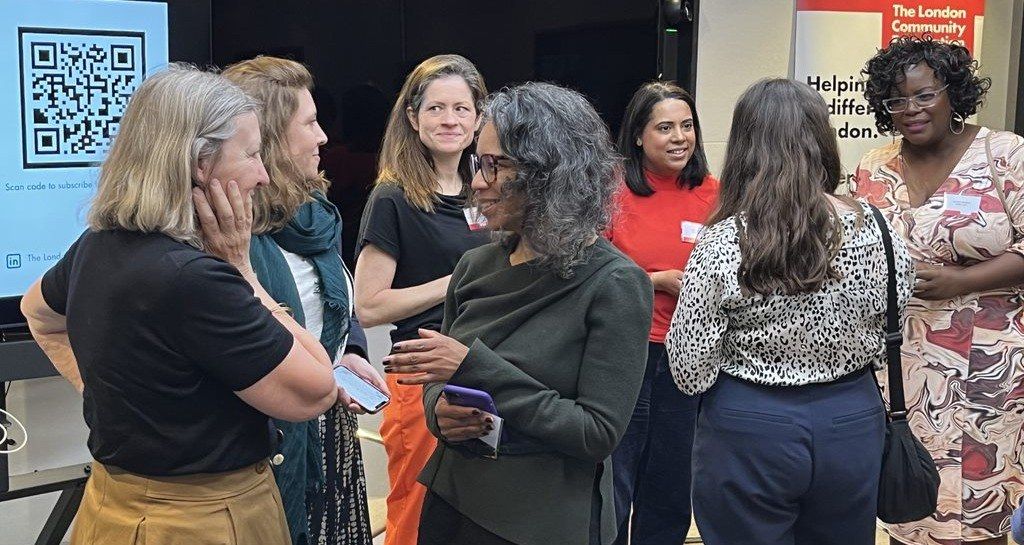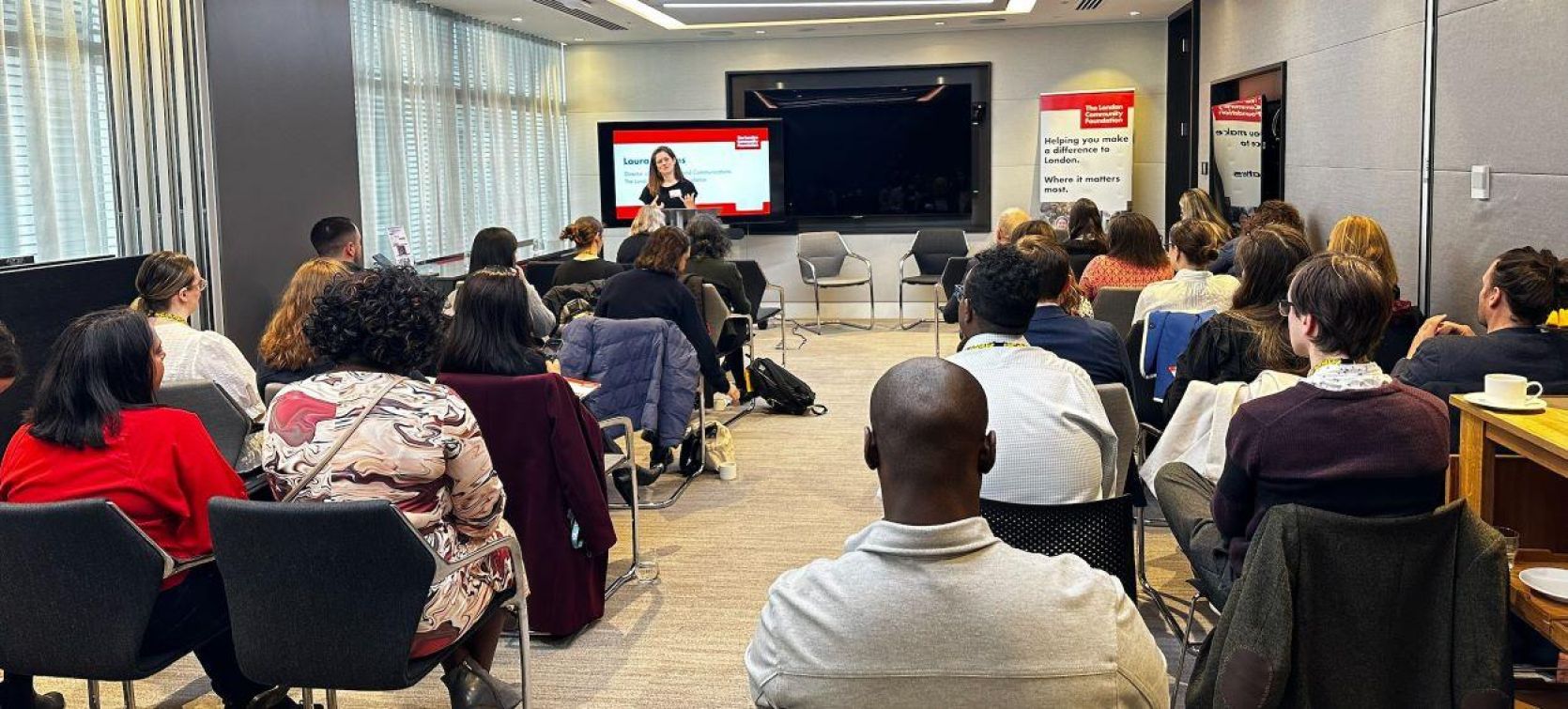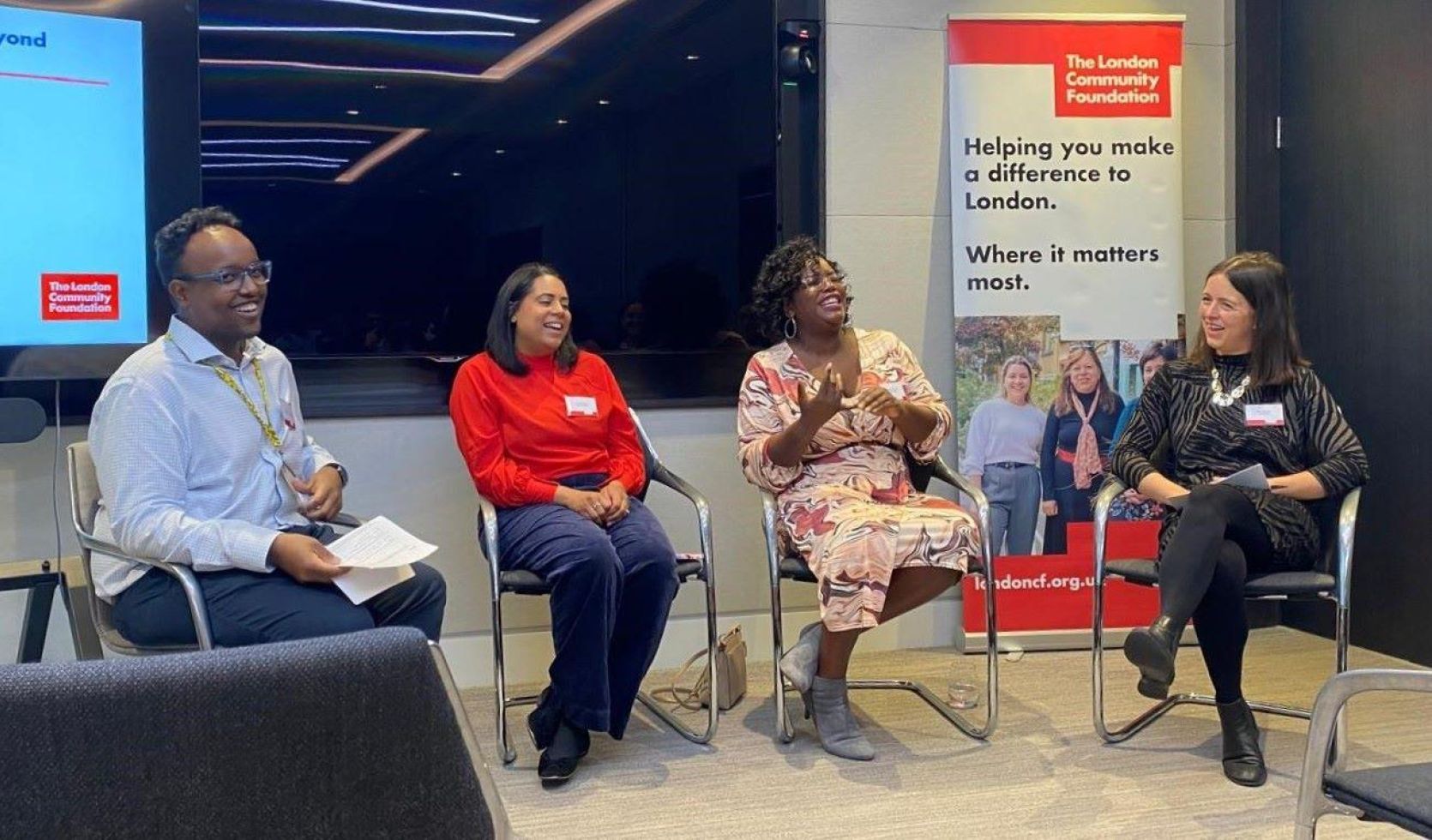
Earlier this month we spent time with representatives from the property development and real estate industries, swapping wisdom and exploring opportunities to help them increase their community impact.
We were very grateful to be hosted by Landsec in their offices in Victoria and joined by industry leaders from across the sector. Our headline speaker was Patricia Brown MBE, from Central – who is the Founder of London 3.0 - and our discussion panel featured three of our partners with different experiences of investing in their local communities.

Patricia Brown MBE shared her experience of (and involvement in) London’s development as a city in recent decades and where she feels London needs to invest in the future. Listening to and building trust with communities as the city develops is essential, with a priority on values as well as (social) value. Lasting change requires “everybody in” levels of collaboration across the community, from the public, private and charitable sectors – much like homelessness was addressed during the pandemic. Hearing from Patricia – one of the leading figures in London’s movement for change – was the perfect way to put our discussion panel in context.
The collaboration that we've already reaped the rewards of is even more important today as we scale up to deliver positive change for everybody. That's why I commend The London Community Foundation to you, as it was one of the vehicles to achieve that.Patricia Brown MBE - Central / London 3.0
Our panel for the morning – Adonica Simmons from British Land, Kate Nottidge from Grosvenor and Ushna Mughal from Knight Dragon – offered insights into their strategies for their particular settings as well as their vision for the future. Grosvenor have worked with The London Community Foundation for ten years and developed a thematic focus – Greener Futures. Knight Dragon, in contrast, completed their first year with The London Community Foundation, following a hyper-local model focused on one of Europe’s largest regeneration projects, the Greenwich Peninsula. British Land have developed a pooled fund approach, which encourages their tenants and occupiers to collaborate on a fund to improve the communities around their campuses.
We wanted our community investment programmes to reflect the needs of those communities and find those pockets of communities which don't get lots of multi-million-pound donations; the grassroots...Ushna Mughal - Knight Dragon
In addition to highlighting the differences in approach, our panel also reflected on some common themes too. The increasing prioritisation of community impact has led to more opportunity for collaboration. This applies both locally (whether across a campus of businesses or with more input from the wider community into fund allocation) and across the wider sector too. Resources are stretched and teams need extra support to invest effectively in local communities. Monitoring statistics don’t always completely represent the tangible, lasting changes in the lives of people in the community. Building effective community impact takes time, determination and intentionality.
One really valuable thing that we've had from working with The London Community Foundation is how we structure our fund - being able to understand from experts doing this day, day out. What works and what's off putting. That kind of pragmatism, around what makes your fund feel accessible to communities, was really valuable.Kate Nottidge - Grosvenor
All three partners spoke of the key role that The London Community Foundation plays in achieving their effective community impact. Here are 5 ways that we help British Land, Grosvenor and Knight Dragon and we would be delighted to help other companies in the future too:
- Increasing capacity: We support companies with the administration of the funds, including going through a process of due diligence on the groups and charities applying. We also supply reporting throughout the programmes, providing statistics and case studies to share with stakeholders and encourage employee engagement.
- Trusted expertise: We’ve been administering grants since 2010 and our team have a vast knowledge of the local charity scene and a broader perspective of what’s going on across London. We identify where the needs are greatest and where funding can be most effective. We also help companies structure their funds and make them accessible to grassroots applicants.
- Making connections: We have a wide network of groups, charities and organisations across London, with a particular focus on smaller, local, specialist groups that would not normally be known by larger companies. These groups often don’t have the capacity to reach out to companies themselves and we can facilitate connecting them with you.
- Independence: We represent the full range of charities and themes and are not limited to one area, authority or specialism. An added bonus of this independence, in the case of the British Land model, means companies donate direct to us so that pooled funds can be independent on any one company. This helps tenants, for example, avoid feeling they are being asked for an extra ‘CSR tax’.
- Openness to collaboration: We have strong working relationships with other funders across London and prioritise working together with companies and funders alike to maximise community impact where it is needed most.

The event concluded with a Q & A including discussions around what it might take to create a fund that multiple companies from the built environment sector worked together on to reach beyond the communities in London where they are individually based. At The London Community Foundation, we are keen to keep facilitating this conversation and it’s exciting to see what the future holds for community impact and the built environment in the years to come.
I would love to see what would happen if every single business - landlord, tenants, suppliers, partners, retailers, everybody - contributed something to the community in and around an asset...Adonica Simmons - British Land
If you are interested in finding out more about how we support companies to make a difference in their local communities, visit our Corporate Giving page:
